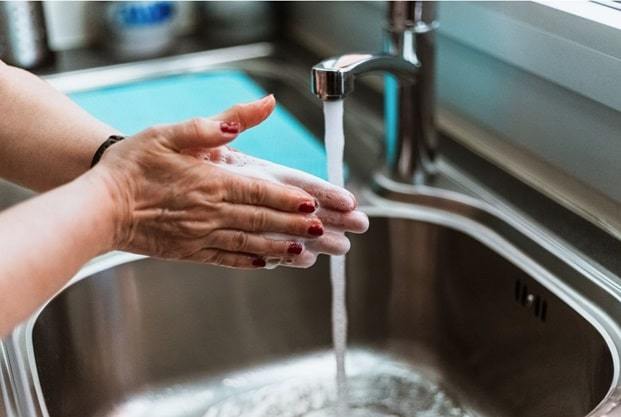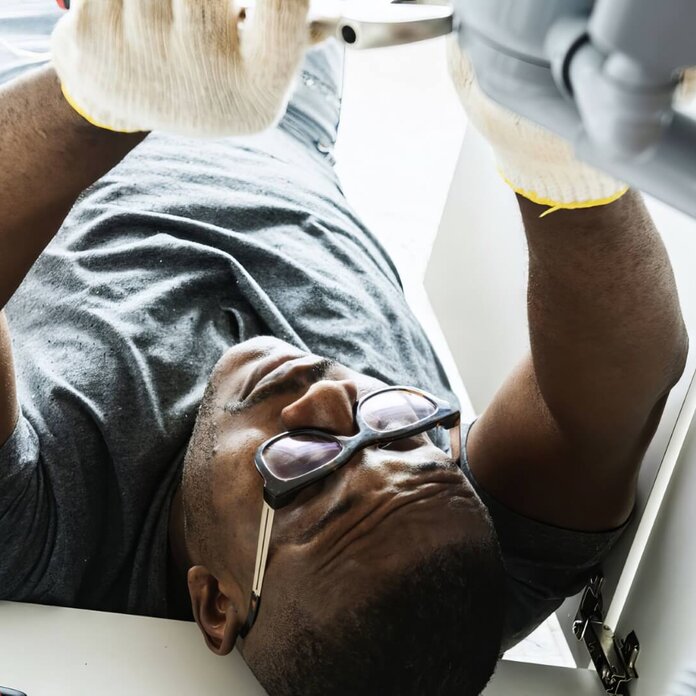Urgent Repair Tips to Follow Until Expert Help Arrives
Urgent Repair Tips to Follow Until Expert Help Arrives
Blog Article
What're your opinions about Plumbing Emergencies: Tips on What To Do Before?

Pipes emergencies can strike at any time, creating tension and prospective damage to your home. Whether it's a burst pipe, a clogged drainpipe, or a leaking faucet, knowing just how to take care of the situation till an expert plumbing arrives can conserve you from more difficulties. This article provides crucial emergency pipes tips to aid you alleviate damage and restore control during a plumbing crisis.
Shut off the Water System
The very first step in any kind of pipes emergency situation is to shut down the supply of water. For localized issues, such as a dripping tap or commode, switch off the shutoff near the component. When it comes to a significant leakage or ruptured pipeline, situate your home's major water shut-off shutoff and transform it off right away. Knowing the area of these shutoffs ahead of time can conserve important time during an emergency situation.
Address Small Leakages with Momentary Solutions
Little leaks can rapidly end up being significant issues if left unattended. Use these temporary solutions till specialist aid gets here:
While these solutions aren't irreversible, they can aid lessen water loss and damages.
Unclog Drains Pipes Safely
A blocked drain can be an aggravating and messy problem. Right here's how to tackle it:
If these approaches do not function, prevent utilizing extreme force, as it may worsen the clog.
Manage Overflowing Toilets
An overruning bathroom can cause prompt turmoil. Here's what you need to do:
Shut Off Your Hot Water Heater
In specific emergencies, such as a ruptured pipe, it's a good idea to turn off your water heater. This prevents getting too hot or damages to the device when water stops flowing. Switch off the power supply to the hot water heater (electrical or gas) and let it cool to stay clear of prospective threats.
Briefly Stop a Ruptured Pipeline
A ruptured pipe can cause significant water damages in minutes. To alleviate the concern:
Call a specialist plumbing promptly to deal with the trouble permanently.
Manage Frozen Water Lines Carefully
In chillier environments, frozen pipelines are an usual emergency. If you presume an icy pipe:
Protect against Further Damage
Taking fast activity to minimize damage can save you money and time in the future. Below's how:
. Have an Emergency Plumbing Set
Prepare a fundamental pipes emergency kit to handle small concerns successfully. Your set ought to include:
Having these devices available can make a significant distinction in your capacity to handle emergencies.
Know When to Call a Specialist.
While quick fixes can aid briefly, certain pipes problems require immediate specialist interest. Call a plumbing if:.
Promptly speaking to a professional makes certain the problem is resolved properly and protects against further difficulties.
Final thought.
Pipes emergencies can be overwhelming, yet with the best knowledge and tools, you can take care of the circumstance properly up until aid shows up. By switching off the supply of water, resolving small leakages, and using momentary repairs, you can minimize damages and keep your home safe. Bear in mind, these ideas are temporary options; always get in touch with an accredited plumber to manage the root cause of the trouble. Preparation and fast thinking are your finest allies in any plumbing emergency situation.
8 Helpful Tips for Managing Plumbing Emergencies at Home
If your plumbing system hasn’t failed once, wait for it because almost everyone has a story to tell. Sometimes, it could be simple emergencies such as a leaking pipe, a blocked cistern, or even a big burst pipe. In situations like this, you need to have some handy tips to save you some money and from possible damages.
Take care of minor issues early.
Sometimes, you could have avoided an emergency by taking proactive measures while it was still early. Some major plumbing emergencies can be a result of an ignored minor issue. We recommend that you have items like plumbing tapes and other related items. A plumbing tape can allow you to manage minor leaks before the plumber arrives.
Cut off the water supply.
This tip is essential in almost any type of leakage problem. For problems like minor leakages in the toilet or kitchen, turn off the supply that takes water to the affected pipes. If the leakage is a major pipe, you must shut off the supply valve to the entire building. This will help you avoid flooding your home and neighbors if you share a flat.
Know your plumbing system
Folks typically move into a new apartment without understanding the water supply around the building. This can prove disastrous if a water emergency arises and the plumber is far away. The previous tip will prove useless if you don’t practice this one. More importantly, know where your water shut-off valve is located – you’ll need that knowledge to prevent potential home floods.
Have some common handy tools
There are lots of plumbing emergencies that you can handle without hiring a plumber. That’s why you must keep some tools available always. Some tools that you can use to fix simple plumbing emergencies easily include plumbing tapes, screwdrivers, thread seal tapes, plungers, pliers, tape measures, and rubber gloves.
Insulate your pipes from cold
You’ll save yourself from many plumbing expenses if you protect your water pipes from the cold. This is because of the harmful effects that cold weather can have on your pipes. During winter, your pipes can burst from being overly expected to freezing temperatures. So, make sure insulators are there to keep the pipes working correctly.
Avoid practices that will clog your toilet.
Many people indulge in practices that can damage the plumbing system of the entire building. One of these is when they use their toilet to dispose-off garbage. They flush all kinds of things, such as paper towels, bandages, hairs, female sanitary products, etc., down the toilet. This will block your toilet in the long run, incurring unnecessary expenditures. Dump such waste in the trash instead.
Check your dials regularly.
Sometimes, there could be leakages in your home without noticing them in time. So, constantly monitor your water meter dial. If the dial is reading when there is nobody using water, this is an indicator that there is leaking. Check for leaks immediately. Call a plumber as soon as possible if you can’t find any.
https://www.constructionplacements.com/8-helpful-tips-for-managing-plumbing-emergencies-at-home/

Do you appreciate reading about What to Do While Waiting for an Emergency Plumber? Write a review down below. We would be pleased to find out your views about this posting. We hope that you come back again in the future. Don't hesitate to take a moment to share this content if you enjoyed it. Thanks so much for taking the time to read it.
Call Report this page